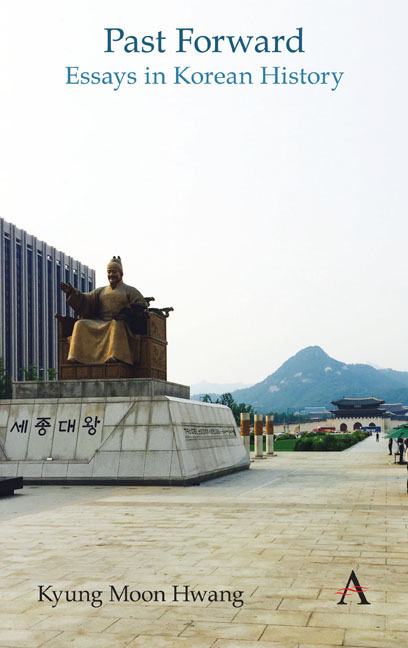Book contents
- Frontmatter
- Contents
- List of Figures
- Foreword
- Chronologies of Korean History
- Themes
- Acknowledgments
- Note on Romanization and Spelling
- Part I Circulating History
- 1 Recycling Names for Korea
- 2 Toppling Tyrants
- 3 Religion and Secularism
- 4 Commemorating the Comfort Women
- 5 May 16 and May 18
- 6 Tragedy and Farce
- 7 Generational Renewal
- Part II Durable Traditions
- Part III Ancient Remains
- Part IV Dynastic Depths
- Part V Modern Origins
- Part VI Challenges of Nationhood
- Part VII History Makers
- Part VIII External Presences
- Part IX Trials of Modernization
- Part X Gripped by the Past
- Index
5 - May 16 and May 18
from Part I - Circulating History
- Frontmatter
- Contents
- List of Figures
- Foreword
- Chronologies of Korean History
- Themes
- Acknowledgments
- Note on Romanization and Spelling
- Part I Circulating History
- 1 Recycling Names for Korea
- 2 Toppling Tyrants
- 3 Religion and Secularism
- 4 Commemorating the Comfort Women
- 5 May 16 and May 18
- 6 Tragedy and Farce
- 7 Generational Renewal
- Part II Durable Traditions
- Part III Ancient Remains
- Part IV Dynastic Depths
- Part V Modern Origins
- Part VI Challenges of Nationhood
- Part VII History Makers
- Part VIII External Presences
- Part IX Trials of Modernization
- Part X Gripped by the Past
- Index
Summary
Most South Koreans associate the month of May with the many commemorative holidays—for children (May 5), parents (May 8), teachers (May 15) and the birth of Buddha. For historians and many others, however, mid-May sparks commemoration of two signature moments of the recent past.
The first is May 16, or “5–16” as it is known. On May 16, 1961, General Park Chung-Hee overthrew the beleaguered, democratic government and installed himself as the head of a military junta that ran the country until he was narrowly elected as a civilian president two years later. Park would win two more presidential elections, then rule through a constitutional dictatorship from 1972 until he was assassinated in late 1979. Over the nearly two decades in which he commanded the state and economy, South Korea went from being one of the world's poorest countries to one of its most dynamically industrializing ones. Park's assassination, however, resulted not in democracy but rather in another military coup at the hands of General Chun Doo-hwan, who instigated the other major event of mid-May that is annually memorialized: 5–18.
May 18, 1980 was the date, following the imposition of martial law around the country, when protesting students in the southwestern city of Gwangju were savagely attacked by South Korean troops. This triggered a wave of violence that, over ten days, resulted in the killing of hundreds and the maiming of many more. There is little doubt that the Gwangju Uprising (or “5–18”) spawned the growing resistance in the 1980s against the military dictatorship and then the mass protests of 1987 that established the electoral democracy of the Sixth Republic, the governing system we still have today.
The historical significance both of 5–18, which later gained formal recognition as the “Gwangju Democratization Movement,” and of 5–16 has been subject to heated debate that reflects deep fissures in South Korean society. Needless to say, the controversy surrounding the 2013–2017 presidency of Park Chung-Hee's daughter, Park Geun-hye, only intensified this discord. In fact, supporters of the latter President Park felt emboldened to cast more doubt on the hallowed standing of 5–18, thinking that this would help their efforts to revitalize the positive historical assessment of 5–16.
- Type
- Chapter
- Information
- Past ForwardEssays in Korean History, pp. 14 - 15Publisher: Anthem PressPrint publication year: 2019



